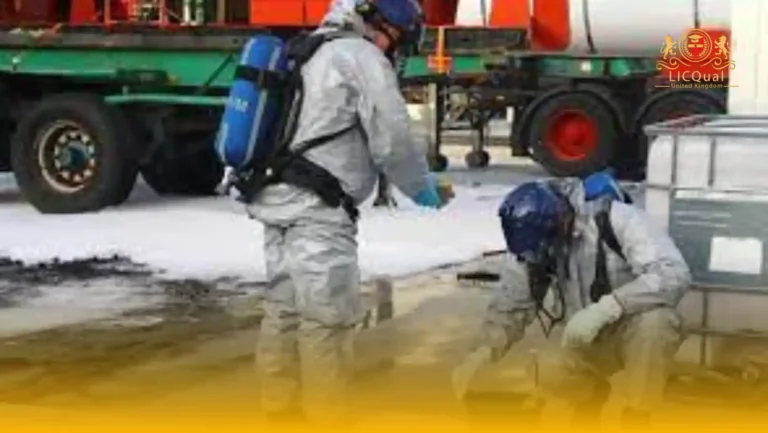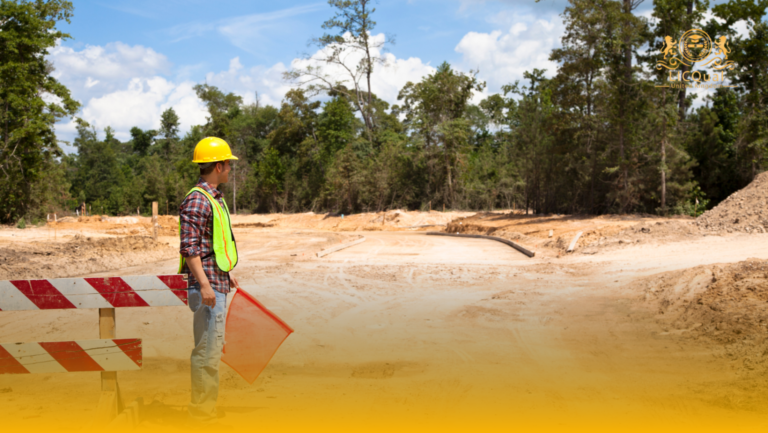Welcome to the LICQual Award in Accident Scene Preservation and Evidence Collection, a specialized course designed to provide professionals with the critical skills necessary to preserve accident scenes and collect vital evidence. This course is ideal for individuals working in safety, law enforcement, accident investigation, or forensic roles who wish to gain advanced knowledge in preserving accident scenes and ensuring the integrity of evidence.
By the end of the program, participants will have the confidence to handle accident scenes with precision and professionalism, ensuring that all evidence is preserved for further investigation or legal purposes.
The LICQual Award in Accident Scene Preservation and Evidence Collection offers a unique opportunity to learn essential techniques for safeguarding accident scenes, preventing contamination, and collecting crucial evidence. Whether you’re an investigator, safety officer, or law enforcement professional, this qualification provides you with the necessary tools to maintain scene integrity and enhance your investigative capabilities.
This course covers all key aspects of accident scene preservation, from securing and managing accident sites to the legal and ethical considerations in evidence collection. Participants will learn the best practices for preserving accident scenes, using specialized equipment, and documenting physical evidence in a way that ensures it holds up under legal scrutiny. Real-world case studies and practical exercises are integrated throughout the course to help learners apply theoretical knowledge to actual accident scenarios.
With a focus on industry best practices, the LICQual Award in Accident Scene Preservation and Evidence Collection is essential for anyone involved in accident investigations, from initial response through to detailed evidence gathering. Upon completion, learners will be well-equipped to contribute effectively to investigations, ensuring that scenes are preserved and evidence is collected in a way that supports thorough analysis and legal processes.
Course Overview
Qualification Title
LICQual Award in Accident Scene Preservation and Evidence Collection
Total Units
6
Total Credits
6
GLH
12
Qualification #
LICQ2200055
Qualification Specification
To enroll in the LICQual Award in Accident Scene Preservation and Evidence Collection, applicants must meet the following criteria:
|
Qualification# |
Unit Title |
Credits |
GLH |
|---|---|---|---|
|
LICQ2200055-1 |
Introduction to Accident Scene Preservation |
1 |
2 |
|
LICQ2200055-2 |
Evidence Collection Techniques and Best Practices |
1 |
2 |
|
LICQ2200055-3 |
Legal and Ethical Considerations in Evidence Handling |
1 |
2 |
|
LICQ2200055-4 |
Accident Scene Documentation and Reporting |
1 |
2 |
|
LICQ2200055-5 |
Forensic Techniques in Evidence Preservation |
1 |
2 |
|
LICQ2200055-6 |
Handling and Transporting Evidence Safely |
1 |
2 |
By the end of this course, learners will be able to:
- Introduction to Accident Scene Preservation
- Understand the principles and importance of preserving accident scenes.
- Demonstrate the ability to secure and protect an accident scene from contamination.
- Recognize the roles and responsibilities of first responders in preserving evidence.
- Evidence Collection Techniques and Best Practices
- Apply various evidence collection techniques using the appropriate tools and equipment.
- Ensure proper handling and documentation of physical evidence to maintain its integrity.
- Understand best practices for storing and preserving evidence for future investigation or legal use.
- Legal and Ethical Considerations in Evidence Handling
- Understand the legal frameworks and regulations governing the collection and handling of evidence.
- Demonstrate knowledge of chain of custody procedures and the importance of maintaining evidence admissibility.
- Recognize the ethical considerations involved in evidence collection, ensuring impartiality and objectivity.
- Accident Scene Documentation and Reporting
- Develop skills in documenting accident scenes accurately through photographs, sketches, and notes.
- Create clear and detailed reports that meet legal and industry standards for accident investigations.
- Ensure that all accident scene documentation supports legal and investigative processes.
- Forensic Techniques in Evidence Preservation
- Understand and apply forensic methods such as fingerprinting, blood spatter analysis, and trace evidence collection.
- Gain proficiency in using forensic techniques to enhance the quality and accuracy of evidence preservation.
- Evaluate how forensic techniques can support accident scene investigations and contribute to legal proceedings.
- Handling and Transporting Evidence Safely
- Implement safe practices for packaging, labeling, and transporting evidence to prevent contamination or damage.
- Understand the proper procedures for securing and transferring evidence from the scene to storage or laboratory analysis.
- Ensure that evidence handling and transportation comply with legal and safety standards to maintain integrity.
This diploma is ideal for:
Assessment and Verification
All units within this qualification are subject to internal assessment by the approved centre and external verification by LICQual. The qualification follows a criterion-referenced assessment approach, ensuring that learners meet all specified learning outcomes.
To achieve a ‘Pass’ in any unit, learners must provide valid, sufficient, and authentic evidence demonstrating their attainment of all learning outcomes and compliance with the prescribed assessment criteria. The Assessor is responsible for evaluating the evidence and determining whether the learner has successfully met the required standards.
Assessors must maintain a clear and comprehensive audit trail, documenting the basis for their assessment decisions to ensure transparency, consistency, and compliance with quality assurance requirements.







